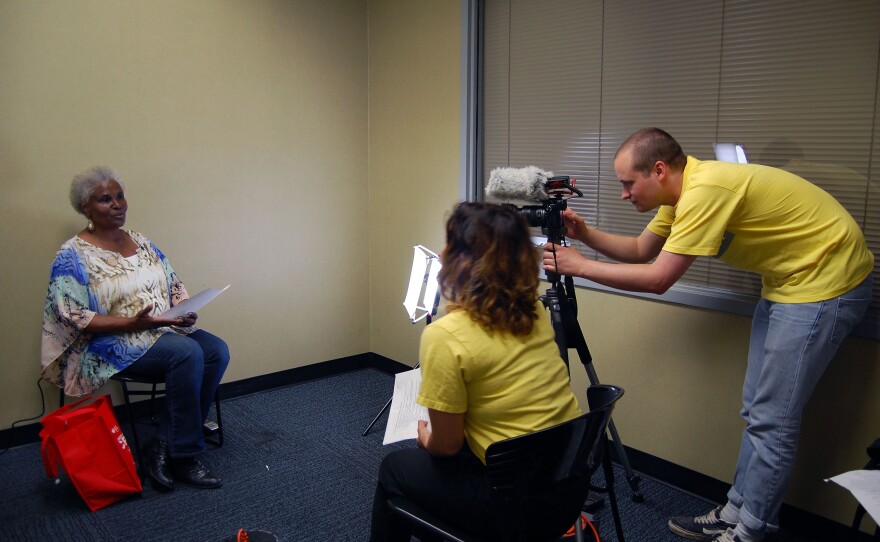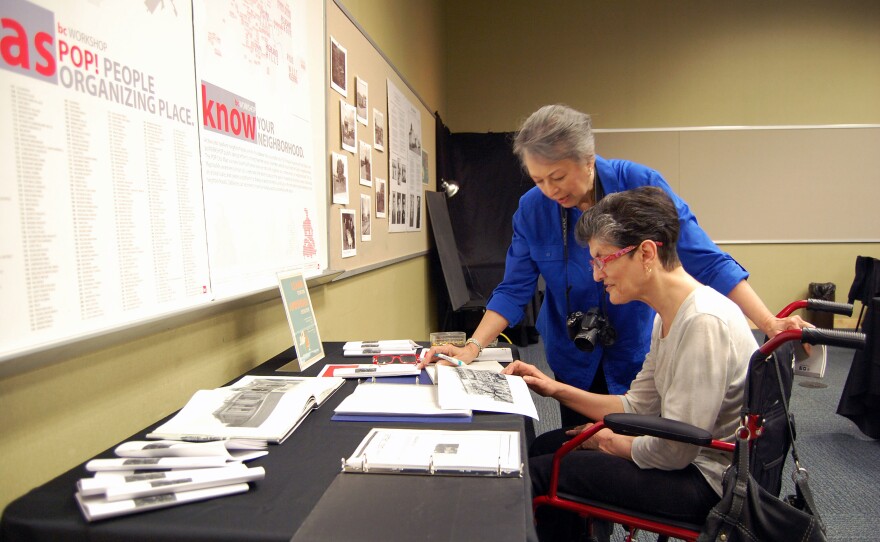People gathered on a Saturday afternoon at the Dallas West Branch Library, not to check out books, but to share their memories of the neighborhood.
Longtime residents were contributing stories, photos and personal artifacts, like church programs, to an event called a "History Harvest."
Organizers with buildingcommunityWORKSHOP, also called bcWORKSHOP, are collecting these oral histories in partnership with the Dallas Public Library with the goal of holding exhibits to showcase the stories and personal mementos for everyone to experience.
The project hopes to highlight how longtime residents in fast-changing neighborhoods like West Dallas are handling change as the city develops and undergoes cultural and demographic shifts.

"We're working with the Dallas Public Library to increase their collection of these neighborhood histories that are based on people and their own memories and what's important about that place," said Lizzie MacWillie, associate director of bcWORKSHOP.
Organizers are also gathering stories from the Polk-Wisdom and Martin Luther King Jr. library branches.
A few weeks after the History Harvest, several longtime residents went back to the Dallas West Branch Library to reflect on growing up there.
For generations, West Dallas neighborhoods have been home to mostly black and Latino residents.
Ronnie Mestas remembers the days when he was a kid — when schools in West Dallas were segregated and students were bussed to schools in other neighborhoods.
"It was segregated, there was pockets, and the streets divided us," he said. "African-American families were on the north side of Singleton, once you passed Westmoreland. Then the Hispanics, the few that were where I was at, we were on the south side of Singleton."

Schools eventually integrated. And through the decades the city of Dallas grew — and neighborhoods like West Dallas changed.
But longtime residents like Maria Lozada Garcia say the city has historically left behind the people who've always lived there. She says it's still happening.
"West Dallas was always medically underserved, there were hardly any recreational facilities or things like that," Garcia said. "The streets were not paved. ... No sewer, a lot of the things. It has always been the stepchild."
Those disadvantages continue to affect West Dallas.
Paula Hutchison says many in the area are grappling with health issues after attending schools in areas polluted by old factories and plants.
"We had to breathe that air everyday," she said. "Many of our people are suffering from disorders that were directly affected by this. We didn't know."

Over the last several years, new housing and retail developments have popped up all over West Dallas.
Trinity Groves brought in restaurants. There are luxury apartments. And that has led to higher rent and property taxes. It's also led to gentrification — and some longtime residents can't afford to live there anymore. Or they've been pushed out of the only place they know.
"Yes, it is personal," Hutchison said. "Blood, sweat and tears went into what we have from our inheritance. It wasn't easy for us. We had to stay on a certain side of the road. When the sun went down, 'Hey, you supposed to be at home.' They had a sign in the yard 'No [N-word] on the grass.' It was like that."
That's why residents are sharing their memories with the History Harvest project.
Maria Lozada Garcia says there's a lot at stake in West Dallas.
"I really would hate to see all of the different communities from La Bajada, to Los Altos, Ledbetter — all of the different neighborhoods have history, have heart here. And it is really important to preserve that," she said.
Garcia and her West Dallas neighbors have seen other communities across the city disappear . They say they won't let it happen to them.
The West Dallas Community History Exhibit will open Sept. 19 at the Dallas West Branch Library starting at 5 p.m. The exhibit will stay at the library through the end of November.







